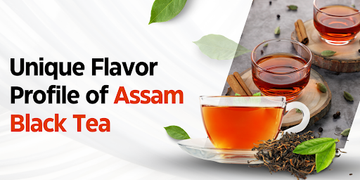
one of the most valued tea types around the globe, Assam Tea is identified for its intense beverage taste having a robust flavor profile and dark brown hue. This tea comes from Assam, a rainforest area in northeastern India, and, unlike many other blends, it tastes quite different from other black teas. It is said that Assam black tea has maltiness, strength, and substantialness in taste, is rich in fragrance, and leaves a velvet-like aftertaste. That is why for lovers and gourmands of tea, Assam tea like that at Mittal Teas provides a tasting experience that can be characterized as strong as the ground where it grows!
Location Attribute About Taste
- This tea is produced in the Brahmaputra valley, which is located in the tropical region receiving high rainfall and low growth altitude.
- This is because the ground is mostly fertile, and the weather is moist all year round, which makes the Assam tea grow its unique and malty taste.
- The native tea variety, Camellia sinensis var. assamica, sources larger leaves adding more body to the tea.
Rich Heritage of Assam Tea
- Assam tea can be traced back to around the 1820s when the British realized that the tea plants could be grown locally.
- Currently, Assam is the most productive state in India and is famous for its black tea types.
- That is why the current type of tea, is still called Assam, which has special methods of cultivation - its own unique processing methods, and a climate that gives it a unique taste.
Intensive and Malt and Full-Forged Color
- Assam black tea has a malty taste which is its unique factor and trademark attribute.
- It has a characteristic malt-like flavor that suggests the impressions of baked bread or grains - that is why many of breakfast blends like English Breakfast and Irish Breakfast are made using this type of tea.
- The lifting and inspiring flavor is found to be rich and deep-bodied.
- The mild astringency of the tea gives the Assam tea a contrast thing that is subtle but bitter, but not discouragingly so.
Subtle Sweetness and Earthy Undertones
- In addition to its dominating malt-like richness, this black tea also possesses earthy background notes, recalling wet soil or rotted leaves, which is a characteristic of autumn.
- It has been described as having a natural, light brown sweetness, nearly fruity. However, when brewed properly, these tones become caramel or molasses-like.
- Some Assam teas have also captured a sort of honey-like taste that complements the strengths of the tea with a modicum amount of sweetness.
Versatility in Taste and Brewing
Assam Black Tea bags are highly versatile, appealing to a wide range of palates:
- Consequently, when the brewing time is just a few minutes or slightly longer, the tea has a light and gentle taste.
- The second one is that longer brewing leads to a lot stronger, malt and powerful tones in the tendencies, cup.
- They you can take it plain, with milk, or make your chai using it as the tea base, which mixes very well with spices such as cinnamon, cardamom, and ginger.
Health Benefits
- Assam black tea benefits are numerous - it is considered to contain antioxidants known as polyphenols which assist in diminishing the potential dangers of the body experiencing oxidative stress. Hence, the likelihood of the body suffering from chronic diseases is expected to be lower.
- The tea has moderate quantities of caffeine. It gives energy like coffee without the effects of excessive energy such as nervousness.
- Antioxidants known as tannins in Assam tea help in digestion, and gut health improving while calming the digestive system and minimizing post-meal irritation.
- When you take caffeine in combination with L-theanine, it enhances memory awareness and the ability to focus and calm the mind.
Brewing the Perfect Cup
- When brewing tea, the water used is best boiled immediately before brewing, it is usually hot between 90-95°C and brew it for 3-5 minutes.
- A short steeping yields a more smooth and balanced taste for a cup of tea and a long steeping yields a more full-bodied and maltier taste.
- Assam black tea is normally taken with milk and sugar and can also be prepared with spices to produce the Indian special masala chai.




